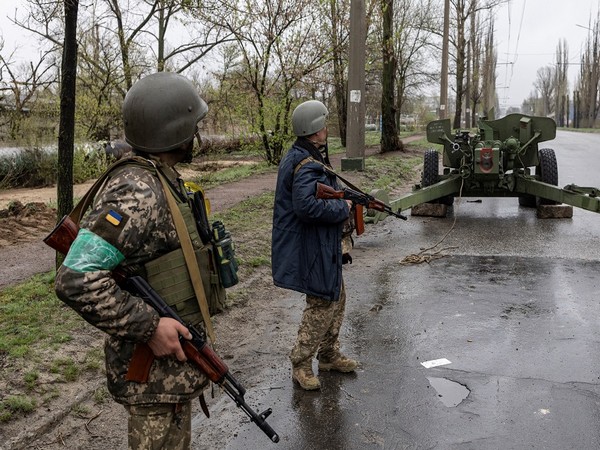At least 41 hurt in Russian air strikes on Kharkiv
Sep 02, 2024
Kharkiv [Ukraine], September 2: Russian air strikes have injured at least 41 people in the Ukrainian city of Kharkiv, officials have said.
Regional head Oleh Syniehubov said five children were among those wounded and he accused Moscow of "aiming exclusively at civilian infrastructure" in the city.
Among the buildings damaged are a supermarket and a sports complex in areas residents go to every day, he added.
Mr Syniehubov said at least 10 separate Russian strikes had been recorded, including the use of ballistic missiles.
People may be buried under the rubble in some areas and rescue operations are continuing, he added.
The attack comes after Ukraine launched a wave of overnight drone attacks against targets in Russia, where fire broke out at two energy facilities.
No injuries or deaths have been reported by Russian officials.
According to Russia's defence ministry, more than 158 Ukrainian drones targeted 15 regions of the country, including the capital Moscow.
The Russian military said the drones were intercepted and destroyed.
But as a result of the attack a fire has broken out at an oil refinery in Moscow in a "separate technical room", the city's mayor said.
Sergei Sobyanin reported that at least 11 drones targeted the capital city and the surrounding areas.
Meanwhile, 75 miles (120km) from the Russian capital, in the Tver region, loud blasts were heard close to the Konakovo Power Station.
Russian media are reporting a fire at the facility.
The region's governor, Igor Rudenya, acknowledged a fire caused by an attack in Konakovsky district had been contained, without providing details of what was hit.
Local officials also said drones attempted to attack the Kashira Power Plant in the Moscow region - but that there were no fires, damage or casualties as a result.
BBC Verify has examined and verified videos posted on social media which show explosions at all three locations. In the footage, fires appear to have subsequently broken out at Konakovo Power Station and the Moscow refinery.
Ukraine has not commented on the claims.
But Ukrainian forces have been stepping up long-range strikes inside Russia over the past few months, launching scores of drones simultaneously at strategic targets several times a week.
BBC News has been told that Western technology and finance are helping them carry out hundreds of long-range strikes inside Russia.
In Ukraine, a 23-year-old lorry driver was killed after a Russian air strike on a grain convoy in the Sumy region overnight, local officials have said.
Prosecutors said four others were injured in the attack after one lorry caught fire and around 20 others were damaged.
Ukraine's air force also said it had destroyed eight out of 11 drones used by Russia, adding that grain and agriculture facilities had been targeted in the Mykolaiv region as well.
Sumy borders Russia's Kursk region, where Ukraine has been carrying out a military incursion for nearly a month.
Progress has slowed in recent days, but Ukraine claimed last week it controlled 1,294 sq km (500 sq miles) of territory - including 100 settlements. It also said nearly 600 Russian soldiers had been captured.
Meanwhile, Russian forces are continuing to advance rapidly on a key town in Ukraine's eastern Donetsk region - which has been the focus of Moscow's ground offensive for months.
Pokrovsk plays a crucial role as a logistics hub for Ukrainian forces, as it is home to a key railway station and is located at the intersection of several important roads.
The most recent Ukrainian attacks on Russia's energy facilities also come a day after a Russian guided bomb strike on a playground in Kharkiv killed a 14-year-old girl.
A similar attack on a residential building in the city in north-eastern Ukraine also killed six other people.
It also follows Russia hitting Ukraine's energy grid with a massive wave of deadly drone and missile strikes last week - which led to at least nine people being killed over two days.
Russia began targeting Ukraine's energy system with air strikes shortly after it began its full-scale invasion in February 2022.
Source: Fijian Broadcasting Corporation








